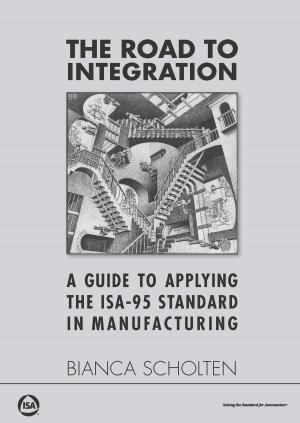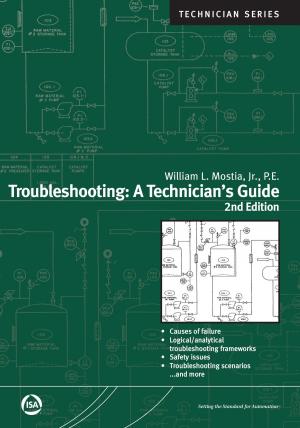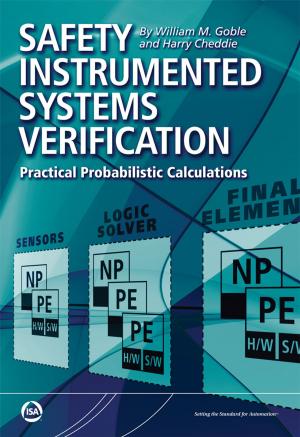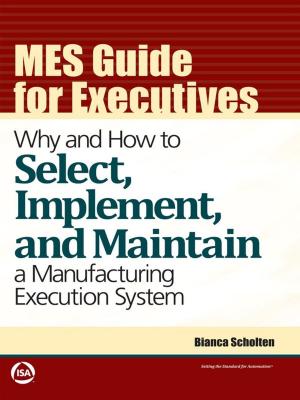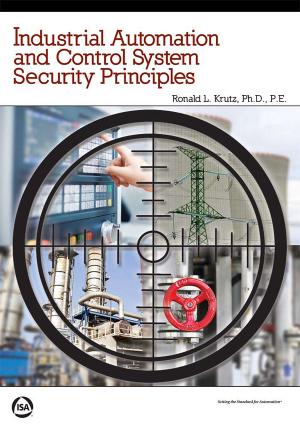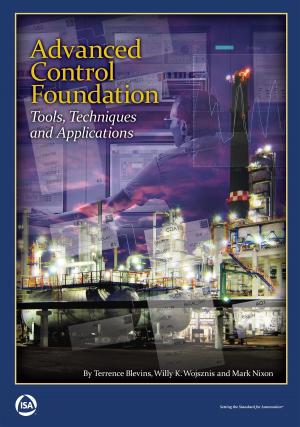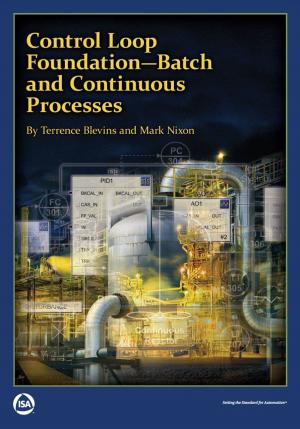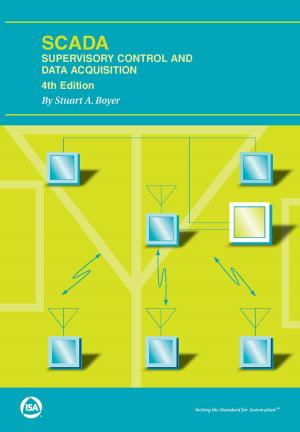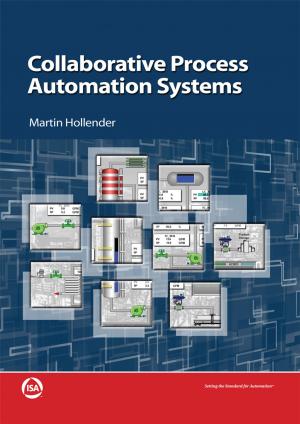The MOM Chronicles ISA-95 Best Practices Book 3.0
Nonfiction, Science & Nature, Technology, Automation| Author: | Charlie Gifford | ISBN: | 9780876640326 |
| Publisher: | International Society of Automation | Publication: | February 19, 2013 |
| Imprint: | International Society of Automation | Language: | English |
| Author: | Charlie Gifford |
| ISBN: | 9780876640326 |
| Publisher: | International Society of Automation |
| Publication: | February 19, 2013 |
| Imprint: | International Society of Automation |
| Language: | English |
Springing from the international success of Books 1.0 and 2.0, the ISA-chartered ISA-95 Best Practices Working Group, chaired by Charlie Gifford, brings out its third collection of Manufacturing Operations Management (MOM) methodology white papers. The Book 3.0 collection focuses on MOM system engineering to organize the complex 21st-century manufacturing plant and to optimize its role in a global supply chain. The methods do not trivialize the complexities as simply equipment optimization or material quality or consumption problems.
In the twenty-year evolution of computerized manufacturing solutions, most manufacturers primarily applied and still apply point solutions to department issues. Book 3.0 explains how to develop an overall operations process definition. This definition determines operations dependencies for the entire plant in the supply network. The operations process definition as the MOM Master User Requirement Specification maps out the “As-Is” inefficient operations and the “To-Be” reengineered efficient operations.
Current leaders and managers of most manufacturers have a very limited vision of how their plants must operate in the global market in five or ten years to be competitive in 2020–2025. Today’s manufacturing managers generally do not have a concept of the total engineering cost to transform their paper-based operations into real-time manufacturing using artificial intelligence for their work processes.
The proven reality of manufacturing operations is that manufacturing innovation requires an iterative continuous improvement process through MOM systems engineering. This requires leaders to accept innovation with managed risk to move manufacturing operations technologies forward. Operations intelligence is high-risk innovation. Period. But by 2025, those manufacturers who have not adopted paperless processes for intelligent operations will simply not be able to compete globally and will fail in business. Book 3.0 lays out the foundation to succeed.
In the twenty-year evolution of computerized manufacturing solutions, most manufacturers primarily applied and still apply point solutions to department issues. Book 3.0 explains how to develop an overall operations process definition. This definition determines operations dependencies for the entire plant in the supply network. The operations process definition as the MOM Master User Requirement Specification maps out the “As-Is” inefficient operations and the “To-Be” reengineered efficient operations.
Current leaders and managers of most manufacturers have a very limited vision of how their plants must operate in the global market in five or ten years to be competitive in 2020–2025. Today’s manufacturing managers generally do not have a concept of the total engineering cost to transform their paper-based operations into real-time manufacturing using artificial intelligence for their work processes.
The proven reality of manufacturing operations is that manufacturing innovation requires an iterative continuous improvement process through MOM systems engineering. This requires leaders to accept innovation with managed risk to move manufacturing operations technologies forward. Operations intelligence is high-risk innovation. Period. But by 2025, those manufacturers who have not adopted paperless processes for intelligent operations will simply not be able to compete globally and will fail in business. Book 3.0 lays out the foundation to succeed.
Springing from the international success of Books 1.0 and 2.0, the ISA-chartered ISA-95 Best Practices Working Group, chaired by Charlie Gifford, brings out its third collection of Manufacturing Operations Management (MOM) methodology white papers. The Book 3.0 collection focuses on MOM system engineering to organize the complex 21st-century manufacturing plant and to optimize its role in a global supply chain. The methods do not trivialize the complexities as simply equipment optimization or material quality or consumption problems.
In the twenty-year evolution of computerized manufacturing solutions, most manufacturers primarily applied and still apply point solutions to department issues. Book 3.0 explains how to develop an overall operations process definition. This definition determines operations dependencies for the entire plant in the supply network. The operations process definition as the MOM Master User Requirement Specification maps out the “As-Is” inefficient operations and the “To-Be” reengineered efficient operations.
Current leaders and managers of most manufacturers have a very limited vision of how their plants must operate in the global market in five or ten years to be competitive in 2020–2025. Today’s manufacturing managers generally do not have a concept of the total engineering cost to transform their paper-based operations into real-time manufacturing using artificial intelligence for their work processes.
The proven reality of manufacturing operations is that manufacturing innovation requires an iterative continuous improvement process through MOM systems engineering. This requires leaders to accept innovation with managed risk to move manufacturing operations technologies forward. Operations intelligence is high-risk innovation. Period. But by 2025, those manufacturers who have not adopted paperless processes for intelligent operations will simply not be able to compete globally and will fail in business. Book 3.0 lays out the foundation to succeed.
In the twenty-year evolution of computerized manufacturing solutions, most manufacturers primarily applied and still apply point solutions to department issues. Book 3.0 explains how to develop an overall operations process definition. This definition determines operations dependencies for the entire plant in the supply network. The operations process definition as the MOM Master User Requirement Specification maps out the “As-Is” inefficient operations and the “To-Be” reengineered efficient operations.
Current leaders and managers of most manufacturers have a very limited vision of how their plants must operate in the global market in five or ten years to be competitive in 2020–2025. Today’s manufacturing managers generally do not have a concept of the total engineering cost to transform their paper-based operations into real-time manufacturing using artificial intelligence for their work processes.
The proven reality of manufacturing operations is that manufacturing innovation requires an iterative continuous improvement process through MOM systems engineering. This requires leaders to accept innovation with managed risk to move manufacturing operations technologies forward. Operations intelligence is high-risk innovation. Period. But by 2025, those manufacturers who have not adopted paperless processes for intelligent operations will simply not be able to compete globally and will fail in business. Book 3.0 lays out the foundation to succeed.

